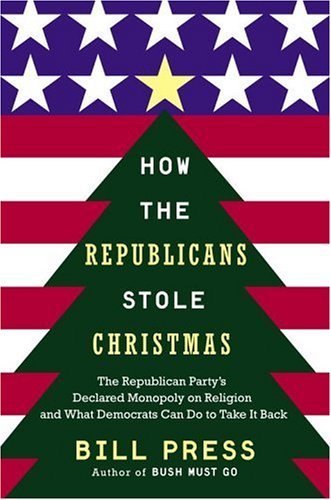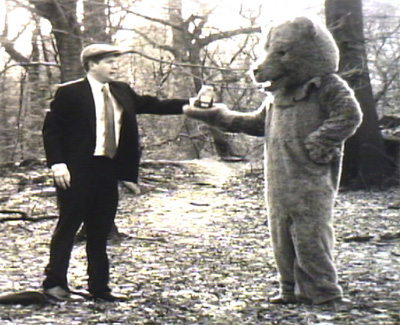A couple of navel-gazing notes from the past few weeks:
* I’ve successfully defended my dissertation prospectus, currently and very drably titled “The Legacy of Reform: Progressive Persistence in National Politics, 1920-1928.” So, now I’m really ABD (All But Dissertation), and all systems are go for my upcoming writing year.
* Although it won’t be out until October, and will require some minor last-minute revisions right up until then (to account for new developments such as the Pope’s probable passing), I’ve spent the past fall and winter researching and editing — and have now finished up — a third collaboration with Democratic commentator Bill Press, entitled How the Republicans Stole Christmas: The Republican Party’s Declared Monopoly on Religion and What Democrats Can Do to Take it Back. In a nutshell (and as you probably guessed from the title), its very timely argument is “The Religious Right is neither religious nor right.” At any rate, since the book is basically in the can and the book cover has made it to Amazon, it seems as good a time as any to tell y’all about it.
* “If you go out in the woods today, you’re in for a big surprise…” Steve Belcher, a high school friend of mine who recently finished a stint at the NY Film Academy — he’s the fellow I was making a few short films with over the winter — has sent along “Sleeping In,” his first very short project, in fabulous Quicktime. Just goes to show, pretty much can anything happen in Central Park these days.



